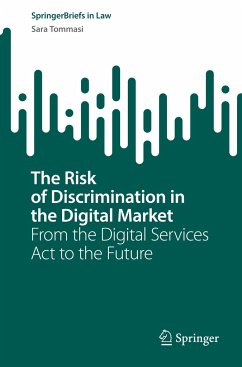The book starts with an analysis of what is new in the Digital Services Act. The aim is to see whether this new Regulation is appropriate both for not halting technological innovation and for addressing the risks that technological innovation poses to society and to the people who use digital services. The focal point is the risk of discrimination as people are often helpless in the face of the potential discriminations in the digital services sector. In particular, the book analyses how the Digital Services Act can make a concrete contribution to the protection against discrimination. To this end, it focuses on the responsibility of digital service providers and the fact that discrimination may also depend on the way in which algorithms and artificial intelligence systems are used. Therefore, a comparison is made between the Digital Services Act and the proposed Artificial Intelligence Act. The comparison discloses that the risk-based approach is the common thread followed by the EU in regulating the digital market. The book elaborates also on the practical implications of the risk-based approach. Highlighting advantages and limitations leading the author to conclude that the risk-based approach is the way forward only if the differences between risk and danger, the limits of law, and the limits of the tendency to humanise artificial intelligence systems are considered. With specific reference to the risk of discrimination, the need for a systemic and multi-level approach is highlighted, which reinforces the contribution that can be made not only by the Digital Services Act, but also by more general and cross-cutting legislation as those on data protection and unfair commercial practices.








